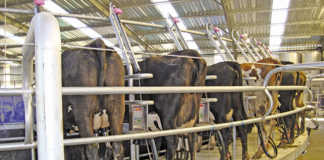A further 505 applications have been referred to economists to determine if the applicant can afford the new wage of R105/day. “What’s troubling is the fact that the labour department hasn’t made available to us the specific criteria they use to determine whether or not a farmer qualifies for a wage exemption,” said Elize van der Westhuizen, Agri SA human resources manager.
Added to this, labour law practitioner André Bloem said that, in the event of a refusal, there was no formal appeal procedure or guidelines to follow to have the case reviewed. “Farmers also only had about three weeks to submit applications, which was very short considering that they needed to consult with employees and unions, and perform budget calculations,” said Bloem.
Most of the exemptions have been awarded for either six or 12 months, by which time farmers should be paying the new minimum wage of R11,66/ hour. “I would personally like the department to be more flexible and to allow employers to gradually increase wages to a stipulated target over a three-year period,” said Bloem. In this way, employers could manage and plan their cash flow better.
Farmers who could not afford to pay the new minimum wage were allowed to apply for a temporary exemption, in terms of Section 50 of the Basic Conditions of Employment Act, provided they could prove that they would be forced to shut down their operation as a result of the higher wage.
In this way, labour minister Mildred Oliphant said, it was hoped that retrenchments could be avoided. According to her, 1 988 farmers had applied for a temporary exemption on the new wage between February and April. The 18 successful applications affected 4 991 workers, while three applications affecting 735 workers were refused. Last month a further
458 applications involving 31 074 workers were refused, due to the applicants’ failure to submit requested additional information such as proof of consultation and/or financial statements.
Agri SA chief economist Dawie Maree said that, with total farmer numbers in SA estimated at 35 000, only 5,5% had applied for wage exemption. “This does not mean that the vast majority of farmers can afford the wage. It could indicate that they’re experiencing such hard times that the wage will simply push them to liquidate,” he said. Many farmers also took other measures to mitigate the increase, such as restructuring operations, retrenching or negotiating shorter hours, added Maree.
Farmers in the Western Cape submitted the highest number of applications (613), followed by Mpumalanga (331), Free State (260), Limpopo (200), Northern Cape (147), North West (146), KwaZulu-Natal (139), Eastern Cape (115) and Gauteng (37). The provinces with the highest number of applications were those with labour-intensive industries, such as fruit in the Western Cape and vegetables in Limpopo.
Bloem said that while all parties concerned had wanted to improve the living conditions of farm workers, the minimum wage would just lead to job losses. The 52% wage hike came on the heels of violent farm worker strikes in De Doorns in the Western Cape late last year and early this year, which resulted in 34 848 working hours being lost. Oliphant said in her 2013/2014 budget speech that she would be engaging labour leadership to discuss the confrontational nature of industrial relations.
“The department will also explore areas that present partnership possibilities, such as capacity building and communication,” she added.












